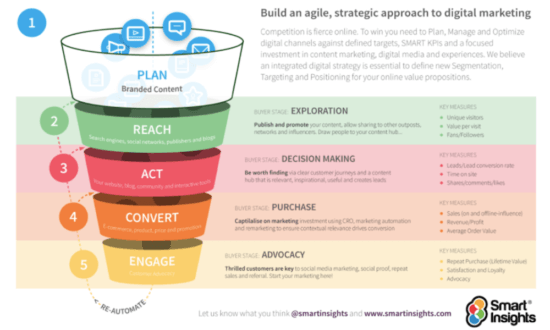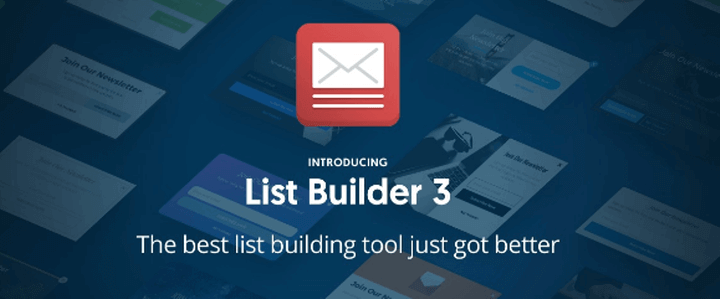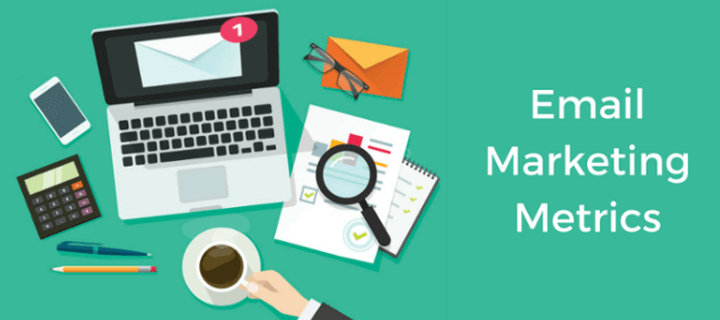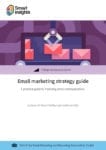Recapture the attention - and transactions - of your e-commerce cart abandoners with effective email marketing sequences
Every hour of every day thousands of e-commerce website visitors add items to their shopping carts, then quietly leave without purchasing anything. Even more surprising, most website owners don’t follow up with these visitors in any way. This lack of follow-up represents millions of dollars of lost revenue, not just from the current purchase, but from additional purchases these shoppers would end up making over time. It is therefore essential, for an E-commerce website to engage these visitors with effective email marketing sequences to help maximize revenue opportunities.
True, some of these cart abandoners were ‘just browsing’ or otherwise had no immediate intent to buy, but others were on the cusp of converting and something wasn’t quite right. In this post, I’ll describe how to recapture the attention - and transactions - of your e-commerce cart abandoners.
There are two things you will need to follow up with these prospects: a) a sequence of cart abandonment recovery (AR) emails, and b) tools for collecting email addresses from cart abandoners.
Email marketing strategy guide
Read our comprehensive guide to email marketing and take your campaigns to the next level. It helps email marketers create a strategic approach to email marketing by using the best communications strategy, targeting, and marketing automation to maximize returns from their lists.
Access the Email marketing strategy guide
First, some abandoned cart math
Not convinced you need to send out AR emails? OK, let’s do some simple math. Say, for example, that you sell budget-priced men’s shoes, and that:
- You process an average of 40 transactions per day (14,600 per year)
- Your average order value (AOV) is US $60
If you can recover just 5% more transactions - and that’s easy to do with good AR tactics - that represents 730 more customers, or US $43,800 in additional revenue. That lift far exceeds the US $5,000 to US $10,000 you’ll likely need to invest (in both staff time and tools) to make these additional purchases happen.
If you run a larger scale e-commerce store the gains will be even more significant. Run a calculation with your data to estimate your potential revenue lift and the associated return on investment (ROI).
Looking for a marketing strategy to accelerate your ROI?
In a challenging environment, marketers must be always looking for efficient and effective strategies to boost their performance and improve their ROI.
Our RACE Framework is designed to help marketers quickly identify opportunities to grow their business. Our popular, data-driven marketing structure combines all key marketing channels including email, social media, SEO, and more alongside marketing planning and strategy, integrated across the RACE Framework of reach, act, convert, and engage.

You can use the RACE Framework to optimize your marketing and drive the results you need. Book your free 1-2-1 consultation call with a member of the team to discuss your marketing strategy in the context of RACE. Integrated across reach-act-convert-engage, our consultation calls are designed to help you identify opportunities and solutions in the context of your customers' experiences of your business, to help you accelerate your ROI. Need a winning marketing strategy?
Book your free 1-2-1 consultation to develop your new strategy with the RACE Framework
Book consultation
Create an abandonment email marketing sequence
The first principle in marketing - and when recovering carts - is ‘Repetition Sells’. You can’t just ask, ‘Are you sure you don’t want to buy the stuff in your cart?’ This sounds too much like begging. No, you need to ask repeatedly, and with compelling variations of email subject lines, copy and calls to action (CTAs).
From my recent work designing and tracking the performance of a few abandonment recovery (AR) email sequences, I’ve learned that a 3-email sequence works the best. Sending more than three emails has ‘diminishing returns’, as an economist would say. In other words, the lower response rate of sending more emails isn’t worth the higher time and money investment.
Based on these learnings, I recommend sending three AR emails:
- 1st email: Immediately after your prospect leaves the site
- 2nd email: 24 hours later (as close the same time of day your prospect abandoned)
- 3rd email: 7 days later (again, as close to the same time of day your prospect abandoned)
As advertising guru David Ogilvy once said,
"When you have written your headline, you have spent eighty cents out of your dollar."
So your headline - or in this case your email subject line - had better be compelling enough to entice more of your viewers to open the email. Once you drive more opens, you can direct more prospects to their carts, or directly to checkout.
Email 1: apologetic tone
For your first email, I recommend a subject line with an apologetic tone, such as, ‘Oops - you left something in your cart at XYZ.com’. This mistake reference grabs attention since it evokes an emotional response. No one likes to forget things.
In the body of this email show the list of items left behind, to trigger the desire to buy. Include an image showing the items in use by a contented person, because that’s your prospect’s desired result.
Keep your first follow up message short and to the point. Act like you’re doing your visitor by sending the reminder.
Email 2: compelling offer
If your prospect glossed over your first email, it’s time to use stronger messaging. Go for a headline like, ‘Save 15% off your first order from XYZ.com’. This shows that you care enough about their business to offering them a special deal. And everyone loves a good deal.
If the dollar amount of savings is higher, use that amount, because neuroscience research has shown that it’s the absolute value that registers most strongly in the brain. As an example, if the total value of cart items is US $200, use this headline instead: ‘Save US $30 off your first order at XYZ.com’.
Email 3: ‘last chance’ offer
If your prospect hasn’t clicked the CTA in either of your two previous AR emails, it’s time to serve up your best marketing pitch. Ask yourself: ‘What is the most I’m willing to give away at this time to potentially get a lifetime customer?’ The offer you come up with should depend, among other things, on your average Customer Lifetime Value (LTV) projections.
If in the example above, your repeat customers have an average LTV of US $250 or higher, you should consider offering a drastic discount. If your average LTV Is more modest - say US $100 - your pitch should be less aggressive.
An example of a good subject line for this third email is:
‘Last chance! Save $30 and Win a FREE Starbucks card’
By automatically entering this prospect into your contest to win a coffee card you are sweetening - actually, ‘caffeinating’ the deal. In your business, just be sure to choose a value-add that your target prospects highly value.
Another emotional trigger you can press: add scarcity. Include, for example, ‘Only 3 left’ copy below the applicable product if you know, based on a data feed from your inventory management system, that you have a limited supply of this product.

Some key things to consider
A few other things to bear in mind as you create subject lines, copy and CTAs for your emails.:
- The vast majority of emails are opened first on mobile phones. And many emails are opened only on mobile phones. So make sure the first 3-4 words of your subject line are catchy since that’s all most email applications will show.
- Most people are distracted or multitasking when they’re reading emails on their phones. So keep the copy concise and always driving the prospect towards pressing that call-to-action button. Emails aren’t the place for long-winded sales pitches.
- Always keep your prospect informed, and give him ‘opt-out’ control. This means including a message in a small font near the bottom saying ‘You will receive only 2 more emails from us for this offer’ (and then ‘1 more’). Of course, also include the required ‘unsubscribe’ link at the bottom of the email.

Integrate an email address capture app
You know the type of emails to send; now you just need to add more emails to your AR list. But how?
Checkout recovery tools offered by vendors like Datacrushers, Freemius, and Rejoiner help to grab email addresses during the checkout process. They do this by moving the email form in your cart to the forefront and then using cookies to make sure the user’s email address is saved–even if they abandon the cart.
One big advantage of checkout recovery tools is that they have the built-in ability to set up triggered follow-ups. And since cart follow-ups are most effective when sent immediately after cart abandonment, this is a very handy feature.
Cart recovery tools are subscription services that typically cost anywhere from US $50 to US $300 per month, depending on your traffic volume. Whether those numbers work for you depends on your situation; but for most eCommerce sites, that's a pittance compared to the revenue lifts you can expect from recovered carts (see ‘abandoned cart math’ above)
Smaller e-commerce player? Use an off-the-shelf plugin
If your website has a smaller volume of visitors and abandoned carts, and you use a standardized e-commerce platform like Shopify Plus or WooCommerce, search for the ‘abandoned cart’ solutions available from these vendors. You’ll likely find that these are the most cost-effective and easiest to implement option.
A word of can-spam caution
Please, do not ever send promotional emails to the email addresses captured through your AR efforts. Not only is this illegal (visitors must explicitly opt-into receiving such promotional emails), but sending them will tarnish your brand image.

Track the metrics that matter
You’ve got the emails, and you’re sending your AR sequence. Now what? Track the most important conversion metrics, which include:
- Email open rate
- CTA click-through rate
- Cart views
- Conversion rate
- Revenue per viewer
- Unsubscribe rate
Track these metrics, and any others, that you can directly attribute to your AR campaigns. And move further upstream in your email campaign funnel: Audit your analytics tagging to ensure that all user actions on your cart and checkout pages are tagged so you can quickly learn which clicks correlate with higher conversions. If possible, tie these conversions back to earlier website sessions or email opens.
After you have launched your new AR campaign and let it run long enough to collect benchmark performance metrics, start testing variations of your subject lines, copy treatments, and CTAs. You may find that you’re able to further improve your email performance metrics and incremental revenues.
Start getting your AR email ROI
If your e-commerce site gets a significant amount of traffic and conversions each day, the math is clear: you’re losing significant revenues if you’re not capturing more emails during or before checkout, then sending an abandonment recovery email sequence.
More often than not, visitors who cart one or more items aren’t casual browsers; they have a clear intention to buy, either now or later. So make every attempt to re-engage them. You might not just end up with more than a one-time buyer - a longer-term and brand-loyal customer. Find out more. Need a winning marketing strategy?
Book your free 1-2-1 consultation to develop your new strategy with the RACE Framework
Book consultation




















